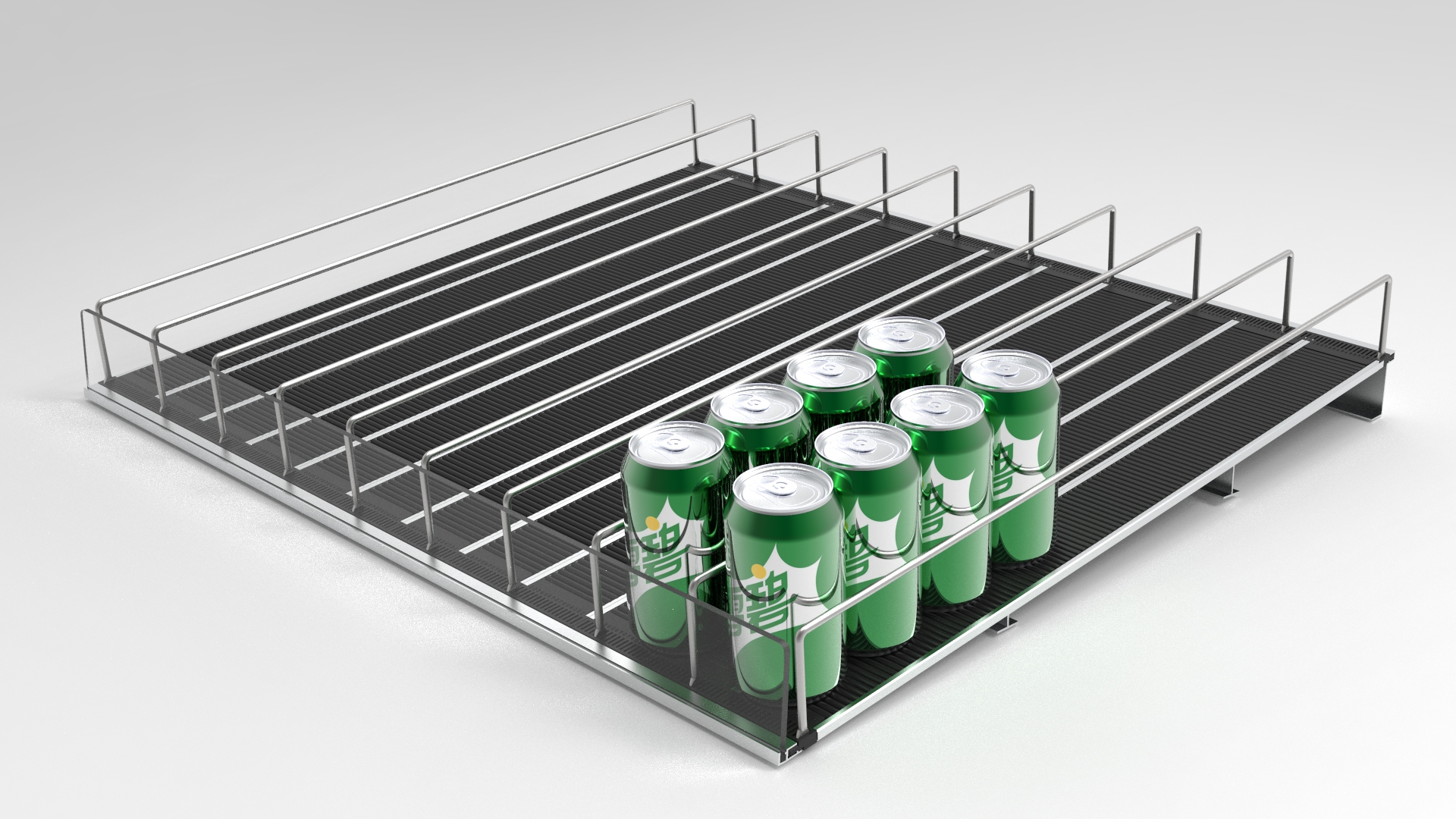Step 1: Define Core Selection Prerequisites (To Avoid Choosing the Wrong Basic Component)
Determine the Application Scenarios and Equipment
Scenario Classification: Convenience store upright refrigerated display cases (core scenario), supermarket air curtain display cases/shelves, and supplementary cold storage.
Key Equipment Parameters: Record the shelf type of the refrigerated display case/shelf (single-layer/double-layer), support method (support arms/support clips), and number of support arm slots (≥2 required; otherwise, the support arms must be replaced first).
Clearly Define Product Information
Product Types: Canned beverages, small bottled beverages, medium to tall bottled beverages (1.5L large bottles, etc.).
Packaging Size: No precise measurement is required; simply differentiate between "standard size" and "large size" to accommodate the appropriate baffle height selection.
Step 2: Choosing between the three versions (select the one with the best cost performance based on your needs)
General version: Flexible adjustment of shelf spacing, adaptable to all packaged goods,short production cycle; suitable for supermarket shelves, display cases,
and convenience store multi-category display scenarios; requires adaptation to multiple products, or the display categories may be adjusted later;moderate cost, short production cycle (fast delivery).
Specialized version: Factory-preset spacing offers high cost-effectiveness and convenient
installation;
sliding shelf rail system is suitable for fixed-category displays in convenience store freezers and supermarkets (such as single-brand beverages); fixed product dimensions mean lower cost than the general version and shorter production cycle.
Customized version: Lowest cost for bulk applications; shelves and slides can be customized as a whole;flexible disassembly and installation;
suitable for convenience store refrigerated display cases (double shelves preferred), and bulk standardized display scenarios;
for long-term fixed display of similar products,requiring bulk purchase (e.g., uniform adaptation for all refrigerated display cases in the store); lowest cost,longest production cycle (requires customized shelves).
Step 3: Precisely Match Dimension Parameters (Core Step to Avoid Installation Failure)
Measure Core Dimensions (Measurement must begin at 0cm from the inner diameter of the shelf)
Shelf Length: Determines the number of store shelf machine systems required (standard slide rail width is 50mm or 50.3mm;for example, a 600mm long shelf requires 12 50mm slide rails).
Shelf Depth: Directly match the slide rail depth; standard options are 250mm-550mm.
If aluminum beams are added, allow for additional dimensions (additional aluminum beam depth +0.2mm, addition of both front and rear aluminum beams depth +12mm).
Confirm Tilting Angle Compatibility
The compatible tilt angle for OFL grocery shelf roller rack is 3-5 degrees (optimal 4-5 degrees), achieved through adjustment of the support arm (front buckle fixing) or adjustment of the support buckles (adjusting the first two D holes for height/adjusting the last two holes by 1-2 positions).
If the equipment cannot be adjusted to this angle, the support structure must be modified first; otherwise,automatic product sliding will not be possible.

